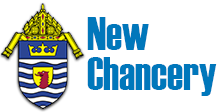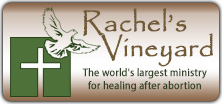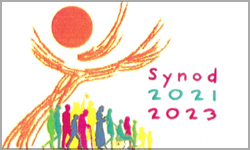The Louisiana Conference of Catholic Bishops (LCCB) has released a statement on Laudato Si’, the Encyclical Letter of His Holiness, Pope Francis published on June 18.
STATEMENT ON THE OCCASION OF
THE PROMULGATION OF LAUDATO SI’
The Louisiana Conference of Catholic Bishops expresses its gratitude to the Holy Father for his thoughtful and challenging call to intentionality regarding all creation as expressed in Laudato Si'. This poetic encyclical reminds us all of our shared responsibility toward our common home as well as one another. The relationship between ourselves, our environment, and our brothers and sisters is familial, and one that should be approached with a spirit of charitable stewardship.
Pope Francis invokes the teaching of his predecessors in reminding us that human activity impacts the entirety of life itself, which must be acknowledged as a gift and therefore defended as such. Drawing upon his chosen namesake, Saint Francis of Assisi, the Holy Father articulates the bond that exists between concern for the environment, a preference for the poor, commitment to society and interior peace.
Human behavior and its moral implications are reflected upon in Laudato Si'. Pope Francis asks us to reflect on the constant change within our society and lives as well as the pace at which it occurs. The goal of such change is generally not suited to the common good and is closely linked to a throwaway culture. We must therefore recognize the need for changes within our individual lifestyle and our patterns of both production and consumption as a means to combat these problems.
Whether it be pollution, waste, climate change, drinkable water, or the loss of species, the Holy Father never ceases to beautifully make the connection between such issues and its effects on humanity–specifically the poor.
“Because all creatures are connected, each must be cherished with love and respect, for all of us as living creatures are dependent on one another. Each area is responsible for the care of this family.”
In Laudato Si', we are constantly reminded that we must remain in open dialogue about both our social and ecological environment. The sanctity of life is upheld affirming a genuine stewardship of creation, as opposed to those who wish to cheapen it through an empty claim of “population control.” Pope Francis reiterates that we are made for love, emphasizes that both science and religion must be included in proposing a solution to the problems we face, and recalls the complementarity of all of creation. Therefore, all that we do must come from a sense of human responsibility, a return to values, and a focus on conscience. If it is to be worthy and fruitful, this true dialogue will require an examination of conscience, sacrifice, and respectful conversation. All must be done with a generous spirit of charity, ensuring that we do not claim an unfettered sense of independence and therefore set ourselves up in place of God. May we be personally challenged by Pope Francis’ encyclical, and strive to do our part to live in solidarity with all of our brothers and sisters as well as our common home.
Members of the Board of Directors of the LCCB are Most Rev. Gregory M. Aymond, Archbishop of New Orleans; Most Rev. Michael Jarrell, Bishop of Lafayette; Most Rev. Robert W. Muench, Bishop of Baton Rouge; Most Rev. Ronald P. Herzog, Bishop of Alexandria; Most Rev. Glen John Provost, Bishop of Lake Charles; Most Rev. Michael G. Duca, Bishop of Shreveport; Most Rev. Shelton J. Fabre, Bishop of Houma‐Thibodaux, and Most Rev. Fernand J. Cheri, Auxiliary Bishop of New Orleans. Robert M. Tasman serves as the Executive Director of the LCCB.
















